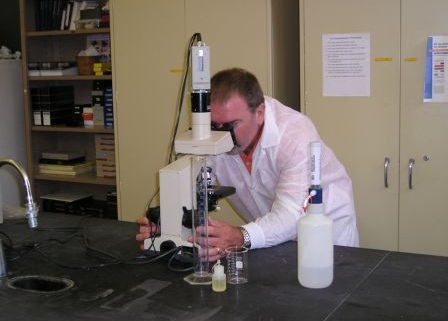Blood Analysis: DUI/DUID, Drug-Facilitated Sexual Assault, And More
Operating a motor vehicle is privilege granted to you by your home state. When applying for, and signing a drivers license, you agree to comply with a law enforcement officer’s request to submit to a breath or blood test, and possibly a urine test. The law governing this agreement is called the Implied Consent Law. Each state has some form of the law and, whichever state you happen to drive through, you are subject to their motor vehicle laws. In other words, what may be legal in your home state may or may not be legal in another. You are, however, responsible for complying with the laws of each.
For the purpose of this article I’ll refer to the laws and procedures in the Commonwealth of Virginia, for that is where I was a police officer and licensed breathalyzer operator.
When pulled over by a police officer you are required to do a few things upon request by the officer—provide a valid drivers license, proof of insurance, and you must submit to a breath or blood test, or both, if arrested for suspicion of driving while under the influence of alcohol and/or drugs. A refusal to do so may result in the suspension of your drivers license and other penalties.
Let’s skip a few steps and say the accused has submitted to the blood test and now that blood sample has been delivered to the lab for testing. The arresting officer requested tests for the presence of drugs. She also stated that preliminary breath tests indicated the absence of alcohol, yet, the driver’s actions strongly pointed to the influence of “something.”
In Virginia, the Department of Forensic Science (DFS) provides all DUI/DUID Blood Specimen Collection Kits. This kit contains two gray top blood vials, two Certificates of Blood Withdrawal, povidone iodine swab to cleanse the suspect’s arm, and evidence seals.
Only the following may draw the blood sample(s): a physician, registered nurse, licensed practical nurse, phlebotomist, graduate laboratory technician or a technician or nurse designated by order of a circuit court acting upon the recommendation of a licensed physician. Police officers DO NOT collect blood samples.
Vials are sealed and placed in a container provided by DFS. They are then mailed or hand delivered by the officer to the DFS.
At the DFS laboratory, scientists screen the blood sample for a standard panel of drugs (unless the officer indicates the possibility/suspicion of a specific drug based on investigation—she found a labeled pill bottle, etc.).
When possible, officers should be specific when requesting lab testing. For example, if the officer has reason to suspect the offender has consumed specific drugs, the description on the lab request form might read—Item 1. One DUI kit containing two vials of suspect’s blood: Toxicology – test for cocaine and marijuana.
If the drug is unknown, only the following are included in the initial drug screen panel.
Cocaine metabolite
Opiates
Oxycodone
Methamphetamine/MDMA
Phencyclidine (PCP)
Barbiturates
Benzodiazepines
Carisoprodol/meprobamate
Fentanyl
Cannabinoids
Methadone
Zolpidem
If a drug is detected during the screen, the scientist’s report will include the drug name and the quantity found in the blood. The report will also list the drugs NOT found in the blood. For example:
Oxycodone 0.12 mg/L.
The following substances were not detected:
Cocaine/Benzoylecgonin
Methamphetamine/MDMA
Phencyclidine
Barbiturates
Benzodiazepines
Carisoprodol/meprobamate
Fentanyl
Methadone
Cannabinoids
Zolpidem
Blood samples are sometimes collected in non-motor vehicle-related cases, such as child endangerment, manslaughter, drug-facilitated sexual assault, and possession/ingestion of illegal drugs (suspect swallows unknown but suspected drugs).
Sexual assault cases involving the drugging of the victim require the assistance of Sexual Assault Nurse Examiner (SANE) who will collect two blood samples and a urine sample from the victim, if the rape occurred less than 24 hours prior to examination. If the rape occurred more than 24 hours prior to examination, the SANE nurse will collect a urine sample only. These samples are kept separate from the Physical Evidence Recovery Kit (PERK Kit, which is sometimes and unofficially referred to as a “rape kit”).
Suspected poisoning cases are handled differently and require special handling and evidence collection procedures. This, my friends, is a topic for another day.
*Remember these procedures and testings apply to the Commonwealth of Virginia. They may vary in other states. But they are a good rule of thumb for fiction, or, if your story is set in Virginia, reality.
*DUID is an acronym for Driving Under The Influence of Drugs




